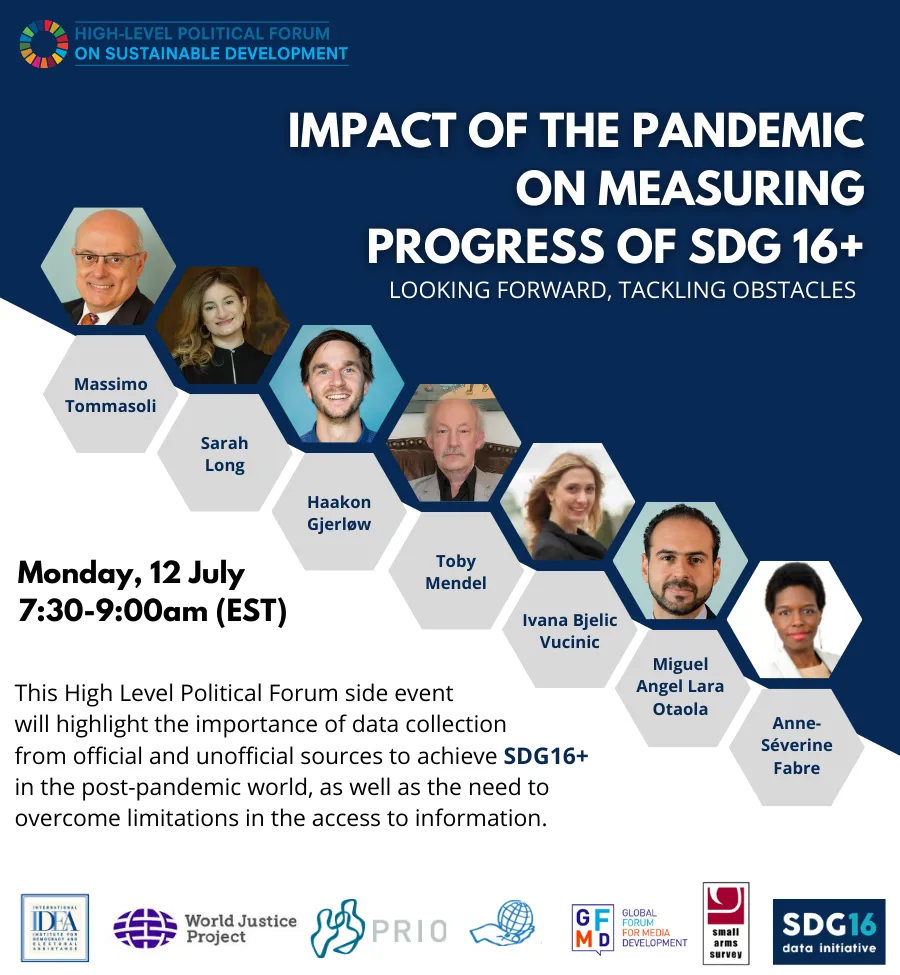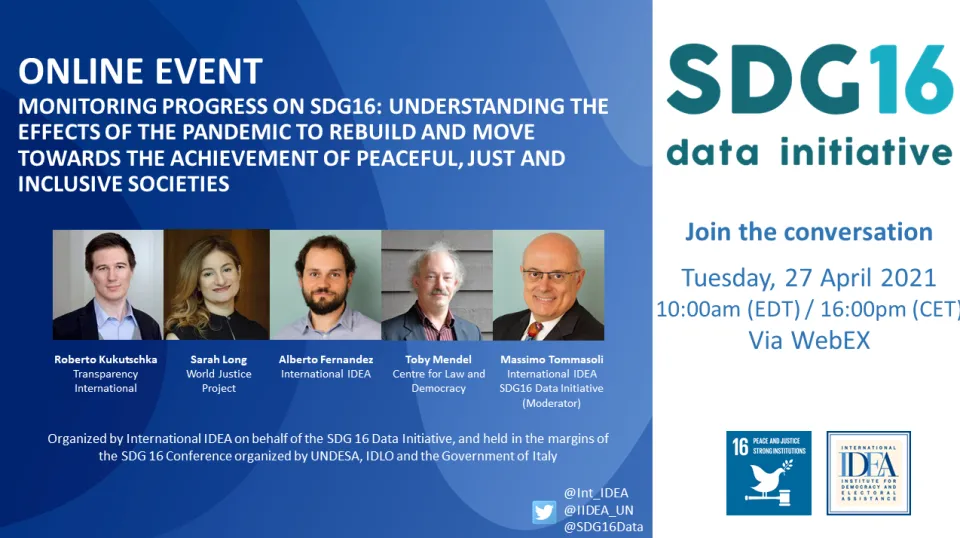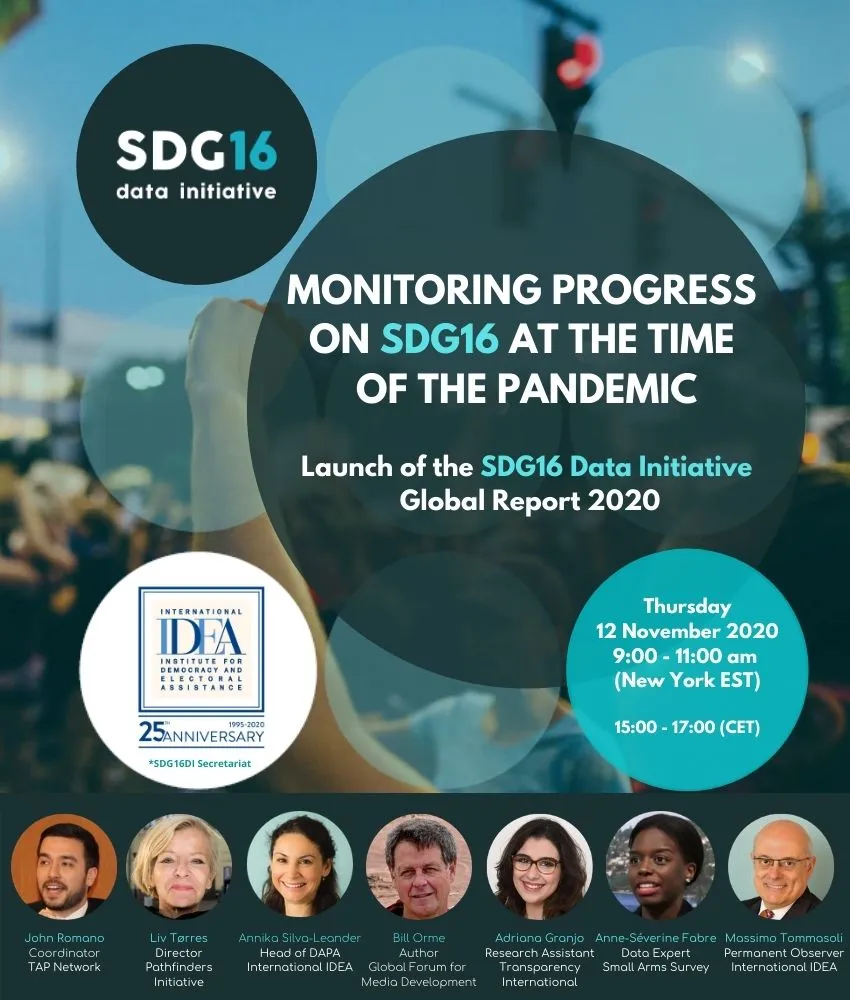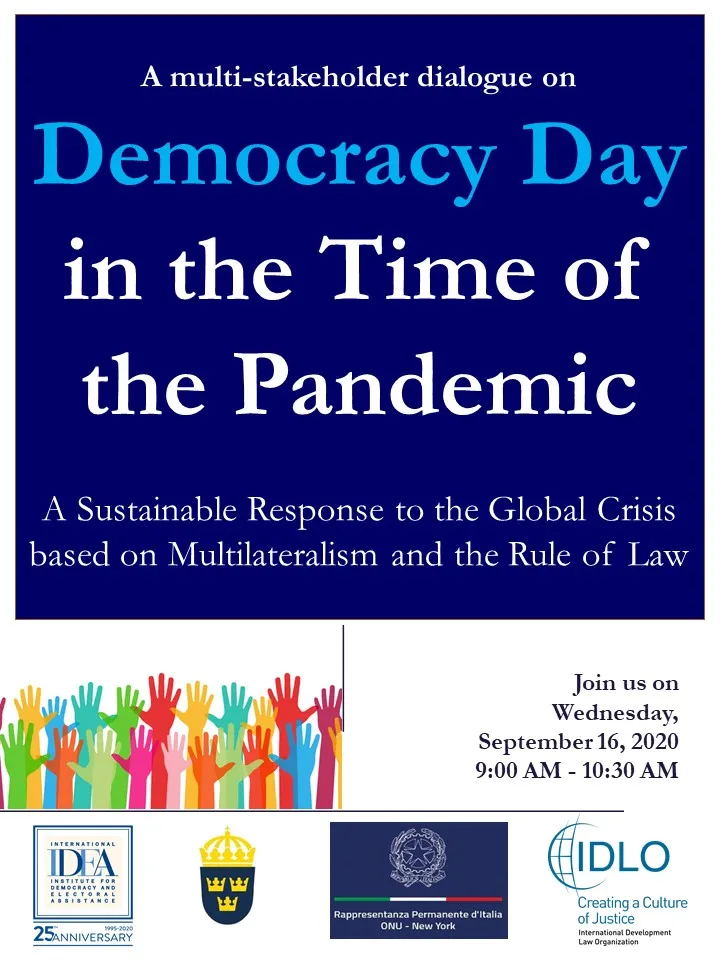[Closed Meeting] The Impact of COVID-19 on Democracy and Democratic Development
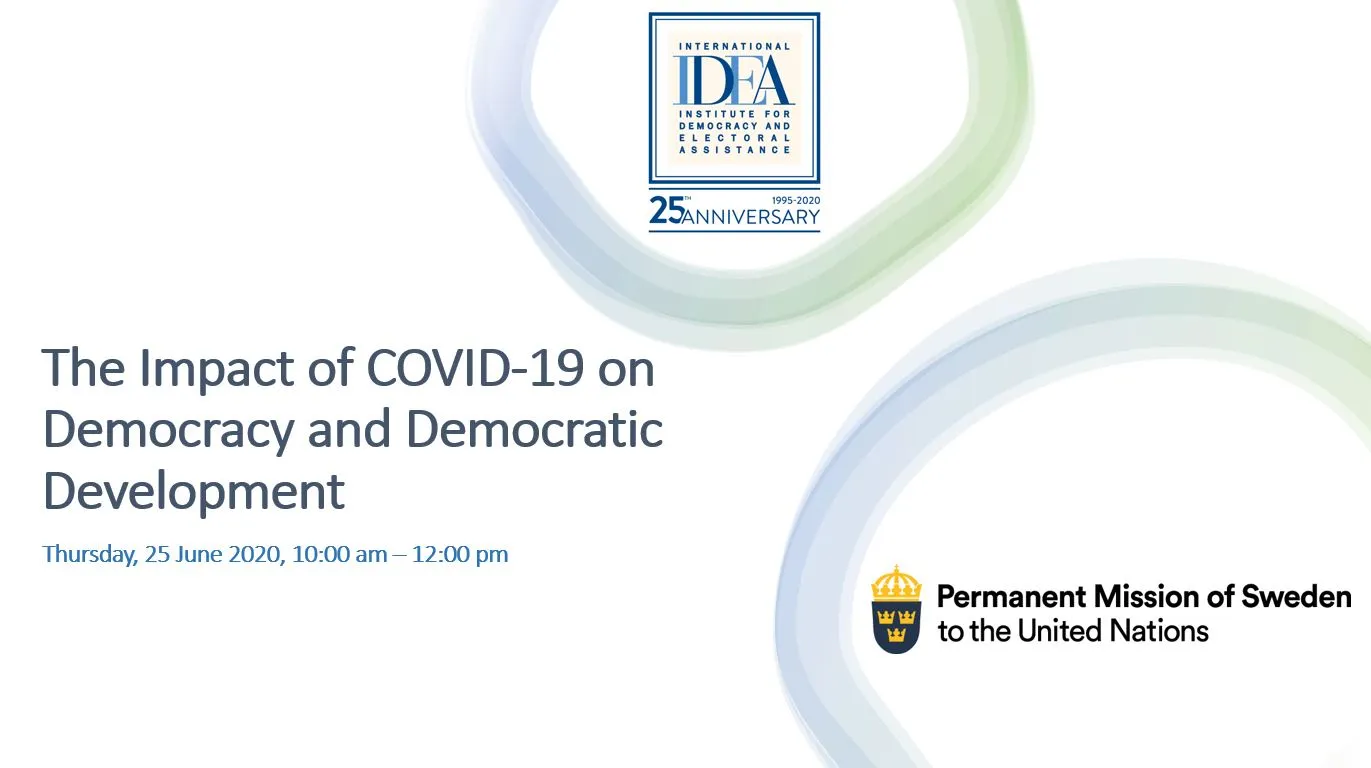
The briefing will focus on the implications of COVID-19 for democracy and the role of multilateralism in strengthening effective governance responses, with respect to both short-term crisis management and the implementation of rights-based approaches to medium- and long-term recovery action. It will provide a space for analysing current trends in multilateral responses and recommendations on how to integrate a democratic governance perspective in international action.
COVID-19 has exposed strengths and weaknesses nationally and globally, ranging from healthcare and other basic service infrastructures, state capacity and crisis management, to information integrity. Everywhere, the virus has demonstrated the importance of transparent, competent, and effective governance as well as public trust in the state.
This presents an opportunity to address the flaws the pandemic has brought glaringly to the surface. Clearly there is a need to revisit election legislation (and relevant constitutional provisions) to set clear procedures in the case of a crisis as well as to upgrade election management and explore innovation (mail in, online). Countries may require expertise in this regard. The crisis also exposed deep inequalities in society, weakness or even lack of social safety nets and unemployment protections for majorities of the workforce, absence of universal healthcare coverage, making some much more vulnerable than others in a crisis. It is an opportunity to rebuild the social contract between government and citizens, ensuring that democracies deliver. This could include technical assistance to support greater public participation in policy deliberations and setting budget priorities; methods for bolstering institutions’ agility to respond to economic development (public accounts committees, parliamentary budget offices); mechanisms to anchor civic advocacy campaigns around budget cycles to provide citizen input on formulation and oversight; openness governance principles requiring inclusive participatory practices in setting priorities; and party renewal and economic issue engagement.
The impact of the COVID-19 pandemic is shaped by, and reinforces, inequalities in societies. First and foremost gender inequality, as shown for example by the worrying trends in violence against women at the time when protection and coping mechanisms have been significantly undermined by the emergency provisions adopted for containing the virus. Looking at the crisis through the lens of democratic governance and gender may help address some of the structural problems that, because of their impact on the agency of different actors in the society, affect at times of crisis their coping strategies and resilience. Also the crisis reveals an important opportunity to strengthen community resilience, including: mechanisms to build social movements, particularly those representing marginalized populations, to advocate for their policy priorities; tactics to support supply side (parties, legislatures, and government bodies) to receive, create platforms for, and incorporate such grassroots input; and tools to build resilient and durable communities (centres, events, charities, networks, girl scouts). Finally, more can be done to develop more robust oversight mechanisms and processes to protect overstepping exposed by the virus, including pre-emptive and ex-post oversight (legislature, judiciary, political minority), tools that address marginalized communities (thematic inquiries and impact assessments), and successful citizen participation in oversight.
International IDEA has a track record of policy-oriented analysis and technical assistance on-the-ground on these issues, and the UN System, through its global outreach and country presence has done it in all regions of the world and may do it even more at this critical time. Other international institutions, like regional organizations and multilateral actors, may share their experience for joining forces at this critical juncture in order to build space for dialogue and support country efforts at recovery for peaceful, just and inclusive societies.
After a general overview of the global state of democracy at the time of the COVID-19 pandemic, the briefing will provide two “deep dives”, one with a thematic and the other with a regional focus. The former will address e-democracy and democratic challenges, the latter will deal with regional trends in the African continent.
Draft Agenda
10:00 am – 10:05 am: Opening and welcoming remarks, H.E. Ms. Anna Karin Eneström, Permanent Representative of Sweden to the UN
10:05 am – 10:20 am: The global state of democracy in COVID time, Dr. Kevin Casas-Zamora, Secretary-General, International IDEA
10:20 am – 10:45 am: Question and answers
10:45 am – 11:00 am: “Deep dive” 1 – COVID-19, e-democracy and democratic challenges, Professor Nicole Goodman, Assistant Professor of Political Science at Brock University, Director of the Centre for e-Democracy, Toronto, and Member of International IDEA’s Board of Advisers
11:00 am – 11:20 am: Questions and answers
11:20 am – 11:35 am: “Deep dive” 2: Democratic governance and the challenges of the COVID-19 pandemic in Africa, Dr. Adebayo Olukoshi, Regional Director, Africa and West Asia Programme, International IDEA
11:35 am – 11:55 am: Questions and answers
11:55 am – 12:00 pm: Conclusions and wrap up
